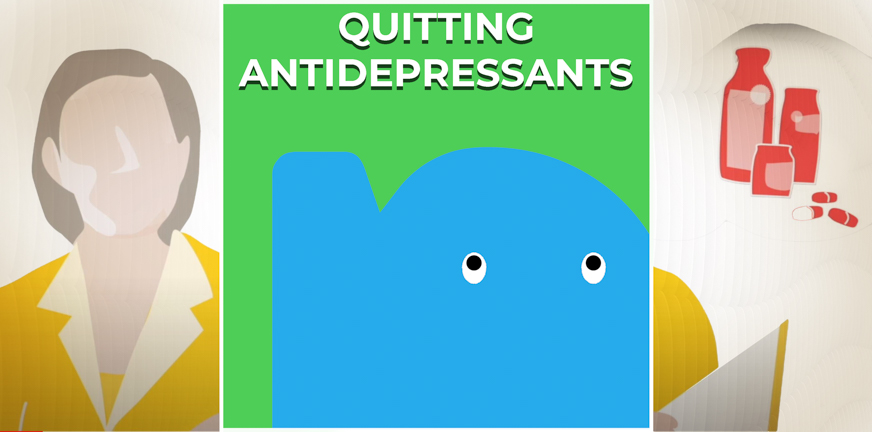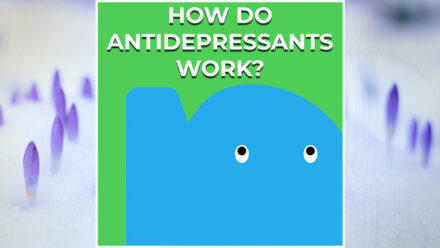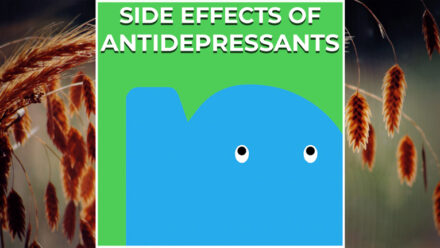
Reducing or quitting antidepressants is best done only after your depressive problems have decreased sufficiently. And after you have gained insight into your vulnerability (weaknesses) AND resilience (strengths). Acceptance and Commitment Therapy can be very helpful in this process. If you are ready for it, this page can inform you about getting off antidepressants.
What are your triggers? Which signals tell you that your problems are getting worse? And what can you do to stop your depression from coming back? It is important to first ask yourself these questions before reducing antidepressants.
You may benefit from finding a support group and/or people with lived experience. Talking to people who are going through the same process, or already have and recovered, can be very helpful. They might have useful tips and advice, or at least make you realise you are not alone in your struggles.
Reducing antidepressants gradually
Antidepressants are not addictive in the way that, for instance, tranquillisers or some illegal drugs like heroine are. But if you reduce too quickly or suddenly stop altogether, you can suffer from withdrawal symptoms. Venlafaxine and paroxetine particularly are associated with withdrawal and some doctors avoid them for this reason. That’s why you should never decide to reduce or quit antidepressants on your own. Instead, make a gradual reduction plan together with your therapist, and keep in regular touch about how you are feeling during the reduction process.
A gradual step-by-step reduction of antidepressants is made easier with a tapering strip. This strip provides a set of ‘made to measure’ medicines that gradually lower the dose over a period of 28 days. These tapering strips are already available for many kinds of antidepressants.
Read more about tapering strips.
Each person reacts differently to reducing antidepressants
Some people have no trouble at all, while others might notice withdrawal symptoms for a while. Slow and gradual reduction, especially when you have been on antidepressants for a long time, reduces the risk of unpleasant effects.
The most common withdrawal symptoms for the different types of antidepressants:
- SSRI: dizziness, difficulties sleeping, feeling irritated, vivid dreams, flu-like symptoms (headache, sweating, shivering), crying;
- SNRI: tiredness, dizziness, headache, difficulties sleeping, nightmares, dry mouth, nausea, agitation, tingling sensations;
- TCA: difficulties sleeping, dreaming a lot, flu-like symptoms;
- MAOI: drowsiness, feeling anxious and irritated, difficulties sleeping, dreaming a lot, delayed speech and loss of muscle coordination.
Extra information:
More information on specific antidepressants can be found at Medlineplus.gov (in English and Spanish).




